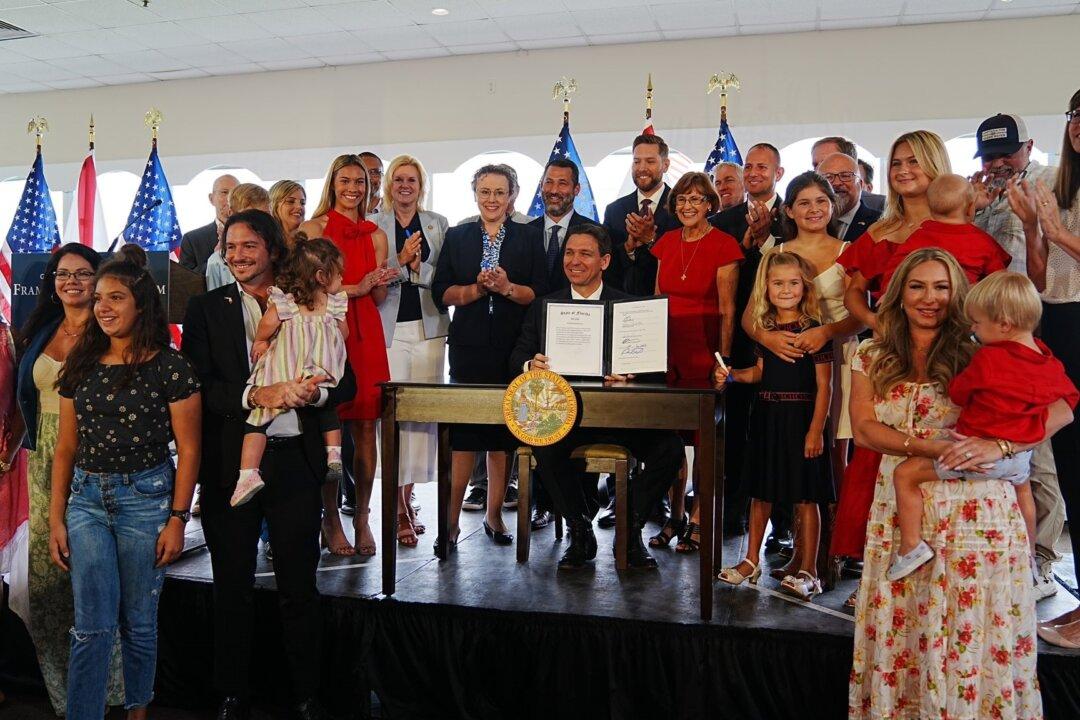Florida Gov. Ron DeSantis signed a $116.5 billion state budget into law on June 15.
He highlighted the budget’s environmental spending by signing it in Fort Pierce with a scenic view of the Indian River Lagoon as his backdrop.

Florida Gov. Ron DeSantis signed a $116.5 billion state budget into law on June 15.
He highlighted the budget’s environmental spending by signing it in Fort Pierce with a scenic view of the Indian River Lagoon as his backdrop.